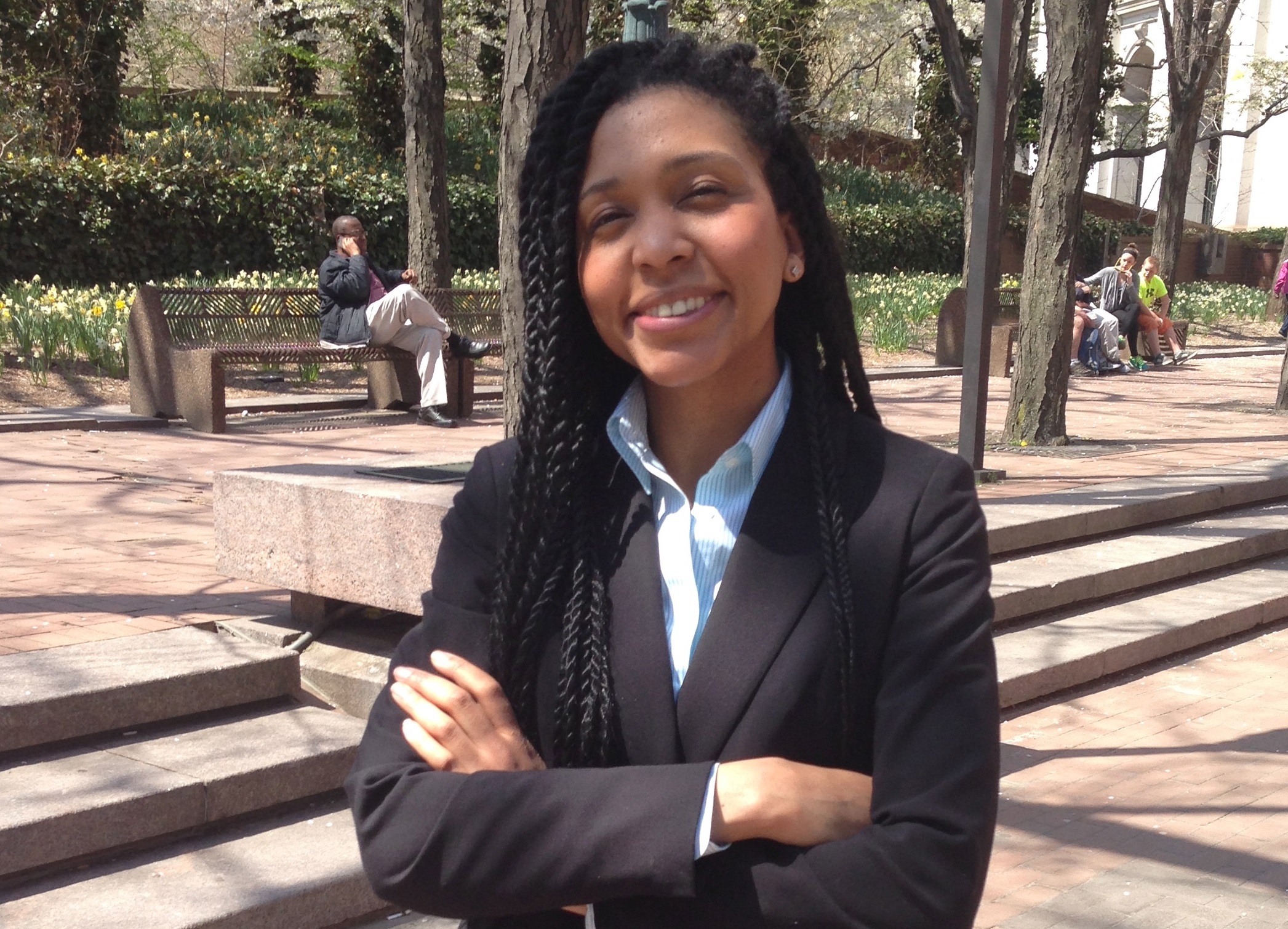Amber Greene ’03 advocates for citizens of NYC
 After graduating from New Paltz, Amber Greene ’03 wasted no time putting her public relations degree to work. Now, 11 years into her career, she’s joined the latest incarnation of New York City government as policy director in the Office of Public Advocate.
After graduating from New Paltz, Amber Greene ’03 wasted no time putting her public relations degree to work. Now, 11 years into her career, she’s joined the latest incarnation of New York City government as policy director in the Office of Public Advocate.
“Oftentimes, policy is done in a vacuum,” says Greene. “In my role, we try to look for those issues that don’t get attention … and try to just address the issue going on, and not make it political.”
As policy director under newly elected public advocate Letitia “Tish” James (who is second in line to the mayor), Greene’s office exists as a watchdog to help the citizens of New York City “cut through the nonsense and red tape” when it comes to addressing “failures in service” on behalf of city government. These issues run the gamut from neglected public housing facilities to overcrowded schools infested with mold and rats.
What drew her most to James, Greene says, was her shared commitment to many of the issues she felt strongly about – particularly affordable housing, which Greene was intensely interested in while pursuing her master’s degree in public policy from Princeton University’s Woodrow Wilson School of Public and International Affairs (which she completed in 2012).
“My whole goal of going to grad school was to figure out how to create affordable housing and reduce homelessness,” says Greene. “I was really looking to get involved with the work (James) was doing. … Her involvement to try to reduce the homeless population in New York City prompted me to really want to work for her.”
Greene’s first job after New Paltz was in Newark, N.J., doing environmental remediation for a brownfields project. She left that position to join the staff of the New York State Assembly as the public affairs coordinator for then-Assemblyman Richard Brodsky.
Greene then spent six years in city government working for the New York City Office of Emergency Management, where she directed the Ready New York campaign “to ensure the safety and preparedness of all New Yorkers” and initiated several disaster preparedness programs that are still functioning today.
“It was the best job,” says Greene. “You wouldn’t think disasters could be something that makes you want to go to work, but every day was different.”
Following graduate school, Greene worked in Washington, D.C., as a communication consultant on educational policy, where she educated clients (including the Gates Foundation and other large philanthropic entities) on how to improve public education opportunities worldwide.
Upon returning to New York from Washington, Greene seized an opportunity to meet then-city mayoral candidate Bill Thompson when he spoke at her church in Harlem. She struck up a conversation with him, and a few months later, was offered a job on his campaign as policy director.
When Thompson’s campaign ended, Greene pursued the policy director position in James’ office.
Greene says her public relations degree from New Paltz prepared her immensely for her career, from being a spokesperson to “being mindful of trying to speak in sound bites” to “knowing the mic is always on.” Extracurricular activities like the campus TV and radio stations taught her about the demands of media.
“In terms of my ability to do public speaking, that’s something I learned at New Paltz by giving presentations in front of the class,” says Greene. Her theories of persuasion course, particularly, taught her how to “bring people where you want them to be” through her words.
Greene says the late Margaret Wade Lewis (black studies) “was so instrumental in learning about my heritage as an African-American woman.” She also credits all the help she’s received over the years from Professor Patricia Sullivan, who she remains in touch with today.
“She is still my mentor,” says Greene of Sullivan. “She’s gone above and beyond, and I really value her friendship and advice.”
Greene sees her continued engagement with New Paltz simply as a way to return the favor for all the help and advice she was given when she was a student. She returned to campus in 2012 to give a lecture at the Honors Center called “Making Connections: Academic and Career Paths Beyond SUNY New Paltz,” and occasionally gives career advice to new graduates who call her for tips.
“People have always helped me, so I believe in paying it forward,” says Greene. “It doesn’t involve anything but time and commitment for me. That is what was given to me, so I feel it’s important to do that.”

